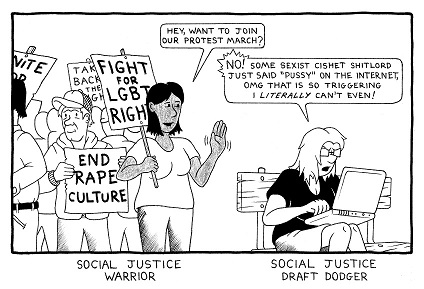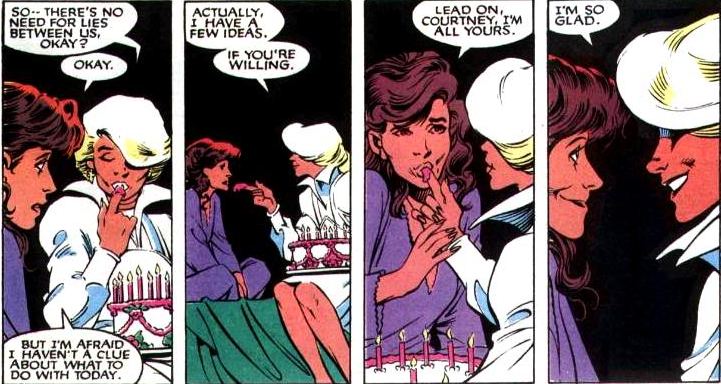Howard Chaykin is the best example this side of Steve Brust of the nominally leftist guy who keeps showing his ass in public:
For the record, the cover depicts the horrific wish dream of some 45% of their fellow Americans. Perhaps if they spent a bit more time paying attention to the fact that the world they were born into is on the brink of serious disaster, they might have less time to get worked up about an image of genuine horror that depicts an aspect of that impeding disaster.
[…]
And of course, that left has evolved into a culture and community that feels that a white, cisgendered male has no right to tell stories of characters who are not white cisgendered males. Beyond its obvious and ridiculous limitations, this is just one more variety of fascism with a sympathetic and friendly face–from a left that still hasn’t figured out a cohesive way to save itself, the country and the world from the crushing monster that my country has become.
The mistake Chaykin makes here is thinking it’s still 1987 and you could pretend comics are read only by white male nerds. Chakyin wants to pretend he’s the voice of the voiceless enlightening an audience somehow ignorant of the plight of trans women or Muslims in Trump’s America, that just depicting atrocities is a courageous stand against injustice. And perhaps in 1987, what Chakyin is doing in The Divided States of Hysteria, when you compare it to e.g. Chris Claremont’s hamfisted lynching analogies in X-Men: God Loves, Man Kills, where “muties” stand in for Black people. But it’s 2017, not 1987 and you have to do better than that.
Because biff, pow, zap comics are not just for well meaning white dudes anymore.
Not that they ever were.
There’s a huge, diversive audience out there, some of which actually have first hand experience with the issues Chaykin writes about. So the bar is higher than if you are writing for a well intentioned, but largely clueless white nerd audience. Get things wrong and you will be criticised, even if you’re a Big Name Leftist cartoonist like Chaykin. And he fails at the first hurdle by falling right into the victim trap. Got a gay or lesbian character in your story? The victim trap has him dying of aids, her getting raped and all of it is oh so inspiring for their straight friends and the straight audience watching. Same of course goes for trans characters, whether or not they “power up” from their rape or abuse trauma and become angels of vengeance. Given that Chaykin has previous with regards to trans characters in Black Kiss — which wasn’t the most subtle of characterisations — it’s not suprising people won’t cut him slack with a new series that opens with the rape and assault of a trans protagonist.
It’s not that you don’t have the right to write characters other than white, cisgendered males — and didn’t John Byrne already complained about not being allowed to create anything other than white villains back in 1992 — it’s that you have to get it right. Don’t fall into the same victim narratives white male cis writers always fall in when writing about characters unlike themselves. And perhaps listen when people criticise your writing, rather than brag that you didn’t read it?

